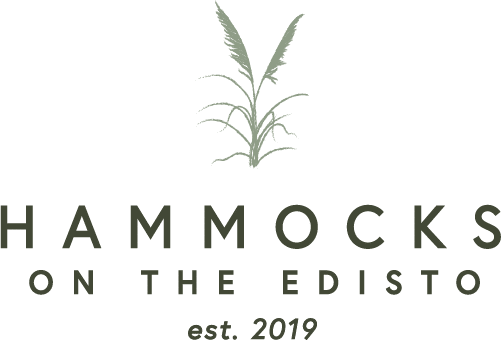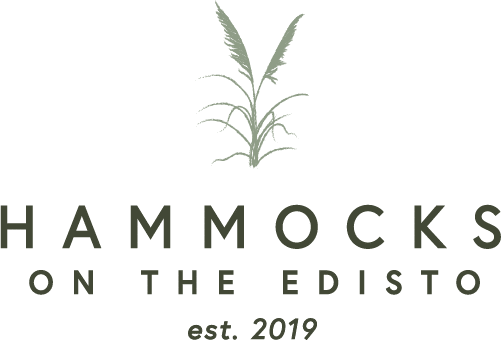Dual Diagnosis
Discover top-rated dual-diagnosis treatment for women in South Carolina at Hammocks Recovery.
Table of Contents


Mental Health Treatment in Charleston, South Carolina
A co-occurring disorder, or dual diagnosis, occurs when someone has both an addiction and a mental health diagnosis such as depression, bipolar disorder, or anxiety. These co-existing illnesses are common, with research from The Substance Abuse and Mental Health Services Administration indicating that 9.5 million American adults have both a mental health diagnosis as well as a substance use disorder (2019 National Survey on Drug Use and Health). While these disorders may be serious, the good news is that they are treatable, and people do recover.
Dual diagnosis treatment is an integrated approach that addresses individuals seeking help for both their addiction as well as their mental health.
At Hammocks at the Edisto, we provide dual diagnosis treatment in South Carolina for those with addiction and co-occurring mental health conditions. We are not, however, equipped to manage acute or emergent mental health issues, but we will work with other local providers to find psychiatric care. We strive to ensure our residents’ safety at all times. To learn more about the support we can provide, please contact our dual diagnosis treatment program in South Carolina today at 833.793.0191.
Women'sDual Diagnosis Treatment
Substance abuse and mental disorders commonly co-occur, and research suggests three possible explanations for the overlap. The first explanation is that there are some common risk factors can contribute to both substance use and other mental disorders. Secondly, mental disorders can contribute to substance use. Alternatively, substance use can contribute to the development of other mental disorders.

the right treatment for you
Who Needs Dual Diagnosis Treatment?
It may be difficult to determine if someone requires dual diagnosis treatment. In addition to drug and/or alcohol use, the woman seeking treatment is also facing difficulties with depression, anxiety, mood swings, or trauma. In such cases, please reach out today, to see if one of our treatment programs can help. The following are common symptoms associated with prevalent mental health disorders, as identified by the Diagnosis and Statistical Manual of Mental Disorders, Fifth Edition (DSM V):
Depression
A low or sad mood, feelings of emptiness, hopelessness, worthlessness, and/or excessive guilt are common with depression. Those who struggle with this condition also experience:
- Decreased interest or pleasure in activities
- Changes in sleep or appetite
- Fatigue or loss of energy
- Difficulty concentrating, thinking, or making decisions
- Thoughts of death or suicide
Research shows that it is extremely difficult to overcome depression alone. Therefore, it is nearly always best to seek a mental health treatment program.
Anxiety DIsorders
Excessive worry that may be difficult to control is a trademark symptom anxiety. These individuals also experience edginess or restlessness, feeling more fatigued than usual, poor concentration, and irritability. Some people also struggle with increased muscle aches/soreness and difficulty sleeping.
Bipolar Disorder
Bipolar type I consists of both manic and depressive episodes, each lasting at least one week. Manic symptoms may include elevated, expansive, or irritable mood swings. They may also have increased activity/energy levels, a decreased need for sleep, and more talkative. They experience grandiose thinking, racing thoughts, and distractibility. Furthermore, they experience lowered inhibitions for activities with significant consequences, such as risky/dangerous behavior, shopping sprees, and impulsive business decisions.
Depressive symptoms may include:
- Low or sad mood
- Feelings of emptiness, hopelessness, worthlessness, and/or excessive guilt
- Decreased interest or pleasure in activities
- Changes in sleep or appetite
- Fatigue or loss of energy
Like those struggling with depression, they may experience difficulty concentrating, thinking, or making decisions, and thoughts of death or suicide.
PTSD/Trauma
PTSD can lead to reoccurring, involuntary, and intrusive memories of a traumatic event. Many people experience repeated, upsetting dreams about the event and flashbacks related to the event. Other symptoms may include:
- Distress when exposed to reminders/cues of the event
- Strong physiological reactions (increased heart rate, sweaty palms, etc.) when reminded of the event
- Avoidance of thoughts, feelings, peoples, places, objects, or situations that bring up memories of the event
- Difficulty remembering aspects of the event
- Feelings of shame, guilt, or fear
- Loss of interest in activities
- Feelings of detachment from those around them
- Difficulty experience positive emotions (happiness, love, joy, etc.)
- Difficulty concentrating
- Changes in sleep and appetite
- Irritability
- Impulsivity
- Feeling constantly “on-guard”
Reach out to the team at our South Carolina mental health treatment center for comprehensive treatment today.
Insurance Can Help Cover up to 100% of the cost of treatment
We Accept Most Major Insurance
Hammocks Recovery is an in-network provider for Blue Cross Blue Shield, Cigna and Aetna. Contact us today to find out if your insurance will help cover many of the costs associated with treatment at our program.



why dual-diagnosis treatment matters
The Importance of Mental Health Treatment
We believe in an integrated treatment approach that simultaneously addresses both mental health and substance use. While we are primarily a substance use facility, we also assess for and address mental health disorders. When left untreated, mental health issues can make recovery from substance use and addiction more difficult. On the other hand, if substance use and addiction are left untreated it is difficult to adequately address and treat mental health. Substantial and lasting change is possible when a person is able to heal on all levels; mind, body, and soul. Our team provides anxiety and depression treatment in South Carolina.
Let Us Help You
Change Your Life

Clients Trust Us
Women's Stories of Hope
I stayed at the Hammocks in the spring of 2022. I can’t say enough wonderful things about my time there. I came into the Hammocks in a very low place but left feeling empowered, motivated and ready to start my life in sobriety. The staff and administration are fantastic, and the house and grounds are gorgeous. I felt more like a welcomed guest rather than a patient.
Lauren B.
The most incredible treatment facility ever! They offer a holistic approach centered in therapy, science, and female empowerment. Eric, Sarah, Jonas, Katie, and all of the other staff offer a level of compassion that I’ve never seen before in any treatment facility. And that says a lot coming from a child of two addicts who have been in and out of facilities my entire life. They are always available and respond quickly to any questions or discussions you may bring up. The family groups were amazing and I miss them every week. They truly care and believe that recovery is possible for all!
Rhapsody C.
I stayed at the Hammocks in the spring of 2022. I can’t say enough wonderful things about my time there. I came into the Hammocks in a very low place but left feeling empowered, motivated and ready to start my life in sobriety. The staff and administration are fantastic, and the house and grounds are gorgeous. I felt more like a welcomed guest rather than a patient.
Lauren B.
My wife spent a month at the Hammocks and I have nothing but incredible things to say about the facility. The help and therapy she received has truly been life changing for our family. From the day I called to discuss admission, Jonas, the director, made himself immediately available to any questions or concerns I had. Throughout her stay, I participated in multiple family sessions a week with Sarah or Eric who were both excellent. They were kind and accepting, but also thought-provoking and challenging. Not to mention, the whole facility is absolutely beautiful. I would highly recommend the Hammocks to any family in need of a recovery center.
Erica U.
This facility has absolutely saved my life. It is secluded, peaceful, beautiful, and a lovely gone environment that makes external and internal healing much easier to tackle. Being away from family and doing the intense work needed for recovery is hard enough in any environment but the Hammocks makes you feel like you are nothing shy of family. You are treated with respect and kindness, and your needs are listened to and accommodated and the staff is so loving and supportive.
Krista B.
As a therapist at Hammocks on the Edisto, I am so proud to be a part of this great team of caring professionals. Being directly involved in the process of change for our clients is a honor. The facility is beautiful and inviting and provides a healthy environment for our residents to thrive. The programming is like nothing I’ve been part of before. From our comprehensive and diverse group sessions, the wellness and yoga component, our individual therapy, medical and nursing care, nutrition and on site chef, and a great team of recovery associates, we collectively provide a great recovery experience.
Eric H.
Hammocks on the Edisto is a dream come true in so many ways. This is a unique place where women can progress on their journey to recovery surrounded by the beauty of the South Carolina Lowcountry and supported by a team of compassionate expert providers. Offerings beyond talk therapy include yoga, cooking demonstrations, adventures to local parks and beaches, and wellness coaching. The facility is never over crowded and each woman gets lots of personalized care. The healing potential is felt as soon as you drive down the long private driveway to the house. Highly recommend.
Kate A.
Don't Wait Any Longer
Connect With Us Today
Contact our caring and knowledgable admissions coordinators today. We will help answer any questions you may have about our gender-specific women’s rehab program right now.

your mental health matters at hammocks on the edisto
Find Support at Our Dual Diagnosis Treatment Center in South Carolina
At Hammocks on the Edisto, we provide a women’s addiction treatment program that addresses the needs of the whole person. We use a wide array of therapy programs to give our residents the support they need to recover from both addiction and mental health issues. To learn more about our mental health treatment program near Charleston, contact Hammocks on the Edisto today at 833.793.0191.

